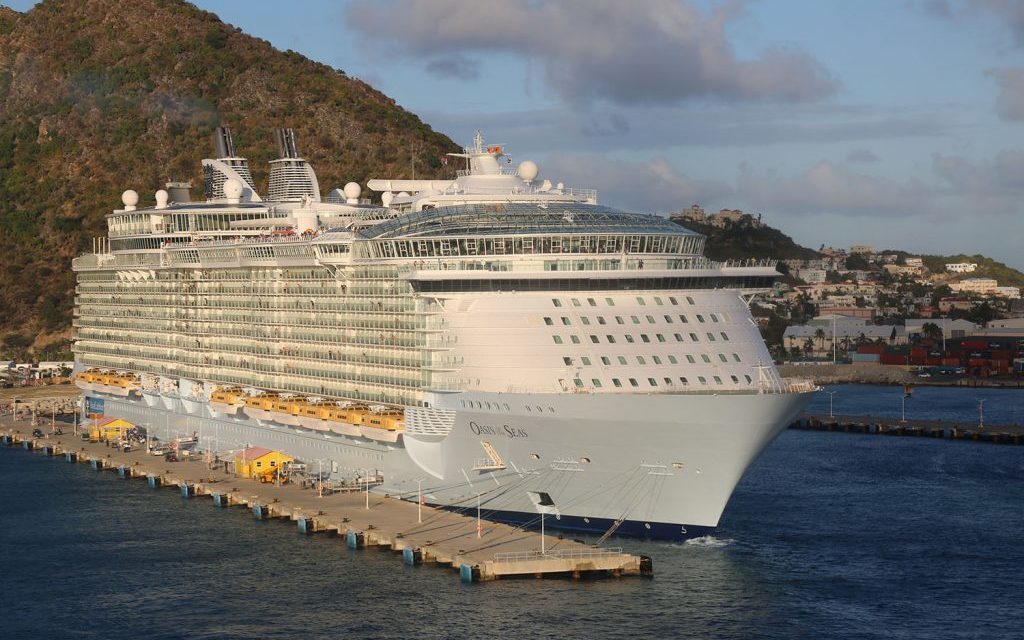Skift Take – Royal Caribbean Cruises has new ships coming into the crowded Caribbean market this year, so it’s no surprise the company has a positive outlook for the year. But we still wonder how eager cruise passengers will be to sail in the region this hurricane season given the disruption caused by storms in 2017.
A year ago, Royal Caribbean Cruises CEO Richard Fain made a prediction as he announced financial results for 2016 and an all-time high for bookings going into the new year.
“This year sets yet another record, but this process doesn’t and won’t continue forever,” he said at the time. “It’s going to depend on a large number of factors, but I don’t expect to announce another record level of bookings a year from today.”
On Wednesday, Fain made reference to that forecast — and admitted he was wrong.
Royal Caribbean closed the year with nearly $8.8 billion in revenue, up from nearly $8.5 billion a year earlier, and a profit of $1.63 billion, up from $1.28 billion in 2016. For the fourth quarter, the company reported revenue of $2 billion, an increase from $1.9 billion the previous year, and $288 million in profit, up from about $261 million. The results beat analyst expectations and the company’s own forecast.
With its results, the company announced it had met a years-long goal called the “Double- Double” to double 2014 earnings per share by 2017 and increase its return on invested capital to double digits. As a reward for meeting the goal, the company is giving employees across the company a bonus equal to 5 percent of their salary, with corporate officers not included. Called the “Thank-you, Thank-you Bonus,” the payment will come in the form of equity grants vesting over three years; Royal Caribbean expects the bonuses to total about $80 million.
Shares of Royal Caribbean closed at $132.71, up more than 4 percent.
Fain said the forecast for 2018 is strong, with high demand for itineraries in North America, Europe, and Asia Pacific and robust spending on ships. That’s despite concerns from analysts that the Caribbean might be showing signs of weakness in the middle of 2018.
“I think there has just been this consistent commentary that recently there’s been a bit of a lull in Caribbean bookings as people might be deferring decision to go to the Caribbean,” Barclays analyst Felicia Hendrix said during the call.
Michael Bayley, president and CEO of Royal Caribbean International, said that while there was a slowdown in Caribbean bookings after hurricanes in September, the slump has since ended. And the company is introducing two new ships in the market near the end of the year — Symphony of the Seas for the Royal Caribbean International brand and Celebrity Edge for Celebrity Cruises.
“Overall we’re feeling pretty good about the Caribbean for ’18,” he said.
Bayley and chief financial officer Jason Liberty floated a few ideas for what might cause a discrepancy between reports from travel agents and its own business. Liberty said that because the cruise company is coming into the year with so many reservations on the books, it has less inventory to sell — which means agents may have less to sell. And agents in the U.S. may not be handling many of the bookings that are coming in because the passengers come from all over the world.
Bayley said it could also be that other cruise lines are struggling in the market even though Royal Caribbean isn’t.
“There are occasions sometimes when a new product enters into the market … and they may have some challenges initially and you may see some fairly aggressive pricing going into the market,” he said. “I mean, that can be disruptive, but it’s very localized, so maybe that’s what you are hearing or seeing.”
In China, another market that has had a significant downside lately, the company is reducing capacity for 2018. Bayley said the current booked position is stronger than the same time a year ago, though pricing is lower than it was before a dispute between China and South Korea forced cruise lines to stop calling on Korean ports with ships departing China.
In an interview, Fain said the company and cruisers in the region have been able to adjust to the current political reality.
“Last year, Korea created a real shock to the system, so that caused problems,” he said. “But this year, we’ve had a little more time and the Chinese people have had more time to acclimate to it. So things are better than last year. But things were soaring a couple of years ago. So we’ve gone from soaring to fine. And I could live with that any day of the week.”
by Hannah Sampson

